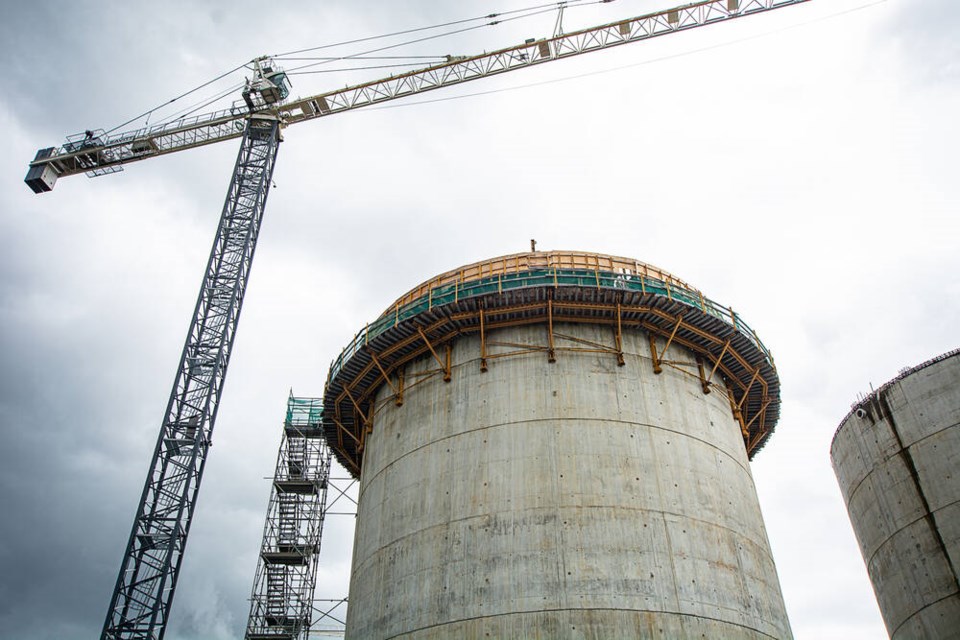To those looking to read something negative and critical: this time, for what I think will prove to be a good reason, we’re taking a breather.
That’s because something good happened over at Metro Vancouver, and given the pulp and bytes consumed in repeated critiques, it bears attention when something positive emerges.
As we know, for many months now politicians and the public alike have been trying to put some flesh on the bone of the story behind the colossal cost overrun of the North Shore Wastewater Treatment Plant project.
The lack of transparency has been galling. The competence and cost-consciousness of Metro Vancouver has been called into question. The situation has worried regional politicians and the province.
But a hopeful sign emerged earlier this month, and it is this glimmer upon which I base this column. A simple, two-plus-hour briefing, with an hour-plus of it answering questions, took down the temperature of elected officials in the region and might well prove to be the start of a much healthier relationship.
Metro Vancouver held one of those Council of Councils meetings for mayors and councillors, and more than 100 turned up on a mid-September Saturday. And why not? The $700 million project has metastasized into a $3.86 billion facility, years behind schedule, ensnared in litigation with the original contractor.
There is no turning back. An audit will watch how the money is spent in the time ahead, an expert panel has brought additional expertise into the team, and while there is a chance Metro Vancouver will win its case with the original Acciona contractor and reap a decent dividend from its counterclaim, it’s too early to tell.
There are clear reasons why the costs grew, if not why they grew exactly so much. But it has much to do with a broadened project scope to upgrade the wastewater treatment, adhere to the seismic issues, keep odours from sickening the adjacent neighbourhood, deal with the re-arrival of inflation, absorb the increased cost of business during the pandemic and what’s left of supply chain issues, and pay for the delays arising from the firing of the contractor.
All told, the new designer (AECOM) has found 400 deficiencies, and the new contractor (PCL) has found more than 1,500 in the work left behind. The project is aimed at a lifespan of anywhere from 50 to 100 years and has 25,000 line items in its budget, so getting it right matters immensely but is tedious beyond belief.
Whether it was caution or reluctance in communicating in real time as the price tag rose, it has correctly bred suspicion. Metro Vancouver hasn’t helped itself at either a staff or board level in being open about the challenges along the way. Which is why it was beneficial for Metro Vancouver’s executives to spend a Saturday at the meeting table.
At it, Metro Vancouver CAO Jerry Dobrovolny brought to the region’s politicians – and, if you so wish to watch online, the public – a more user-friendly persona. There was the predictable snark about media – the usual stuff about “uncontextual information out there,” how it’s “very difficult to get good news out or get accurate news out,” about the “uphill battle” when reporters condense a half-hour interview into two five-second soundbites, and a defence on why Metro’s bad news about the overruns had to be rolled out on a Friday afternoon (board met earlier that day) – without accepting any responsibility for only providing piecemeal public information about such a large initiative.
When all was said and done, though, Dobrovolny put many more facts in the public sphere. (Not-so-fun fact: local wastewater has four to five times the fentanyl as in other Canadian cities.) He even offered to appear before councils.
With more than 300 capital projects at various stages – including not only the North Shore beast with the forlorn history, but the mammoth Iona plant in Richmond ready to deliver sticker shock (read: maybe $10 billion) – we can use more information.
Dobrovolny seemed to be seeding the ground for greater communication, with a conscious program to help the region keep abreast of how local projects are evolving. Will it thwart the outrage if $700 million ever becomes $3.86 billion again? Perhaps, if the public has a stake in the real-time narrative of any exploding expense.
Kirk LaPointe is a West Vancouver columnist with an extensive background in journalism. His column appears bi-weekly in the North Shore News.




